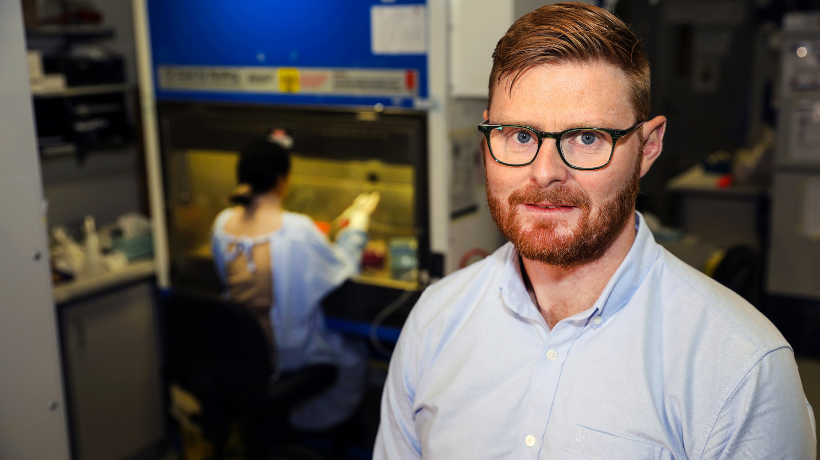
The Kids’ Cancer Project-backed researcher, Professor Matt Dun, has become the beneficiary as part of a $20 million injection from the Australian federal government into childhood brain cancer research.
Professor Dun and his team at the University of Newcastle will gain $2 million from the funding round, which will allow them to utilise cutting edge technologies including artificial intelligence to develop a treatment regimen to improve outcomes for children with diffuse midline glioma (DIPG), an aggressive brain tumour with no known effective treatment.
The Kids’ Cancer Project understands the importance of an investment into brain cancer research and access to clinical trials to move the dial for children who are diagnosed with tumours such as DIPG.
“To achieve our vision of 100% survival for children, adolescents and young adults and for them to live with no long-term health implications caused by their treatment, there must be a concerted and collaborative effort in this space,” The Kids’ Cancer Project CEO Owen Finegan says.
“That is why The Kids’ Cancer Project has already committed over $7.75 million into research through the Australian Brain Cancer Mission and over $3.2 million to ANZCHOG for clinical trial access and partnership support.”
The Kids’ Cancer Project first started supporting research at Dun’s lab in 2021, with the charity providing Dun and his team with $1.136 million to date.
“This investment represents hope for families who desperately need breakthroughs. We encourage the Government to continue prioritising resources for Australian paediatric brain cancer research and clinical trials,” Professor Dun says.
“Australia is home to some of the world's most talented researchers, and with adequate support, we have the potential to change the future for these children and their families."

Two key research projects undertaken by Dun’s lab have been co-funded by The Kids’ Cancer Project. Nearly $300,000 was provided to tame free radicals to silence the epigenome of kinase-active paediatric cancers, while $300,000 was given to develop PHOTON (Pharmaco-phospho-proteo-genomics) for paediatric high-grade glioma.
The Kids’ Cancer Project has also provided funding via two projects during our recent Col Reynolds Fellowships round. Dr. Evangeline Jackson was successful as an Early-career researcher and Mr. Bryce Thomas as a PhD student in the highly competitive funding round.
Eve Daher, one of the longest surviving DIPG patients on record, is receiving treatment in line with Dun’s research. She says she is delighted with the funding announcement.
“I am so proud we have achieved this goal,” she says.
“I hope in the future no kid has to go through what I am going through. It’s so hard and I don’t want other kids to feel the way I do.”
Monash University were awarded $16 million via the funding with $14 million to be used to develop the CoACT-Brain Cancer: The Consortium for Australian Children’s Trials in Brain Cancer project, which will ensure children with brain cancer can access the world’s most promising clinical trials. $2 million will be utilised to improve outcomes for children with high-grade gliomas, including DIPG.
“Research is a key weapon in our unrelenting fight against DIPG and childhood brain cancer,” says Minister for Health and Aged Care, Mark Butler MP.
“We need bold and innovative research approaches to find treatments and a cure for DIPG and childhood brain cancer.
“Australia has some of the best researchers in the world in this field and this funding from the Australian Government will mean children and their families will have improved access to the latest clinical trials.”
